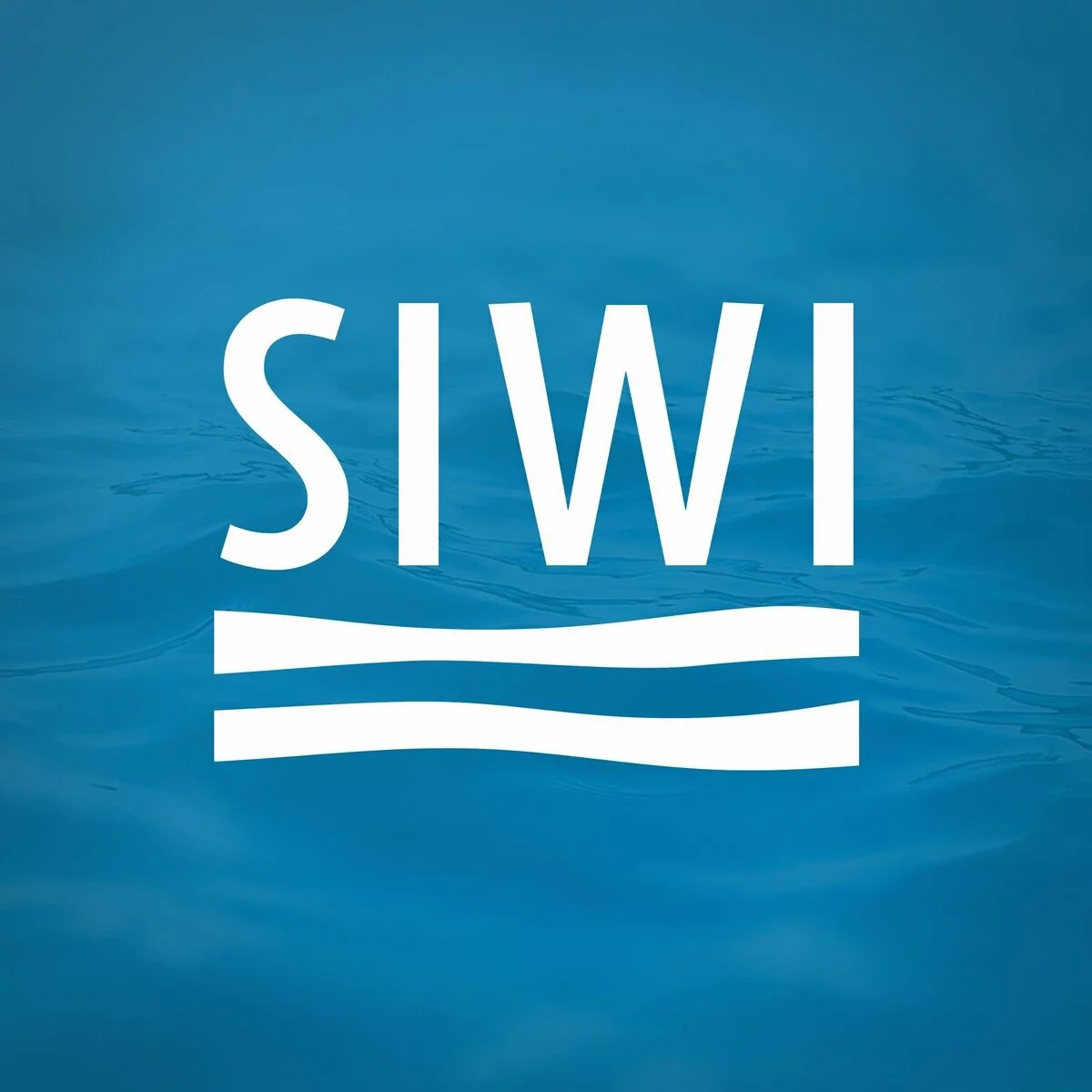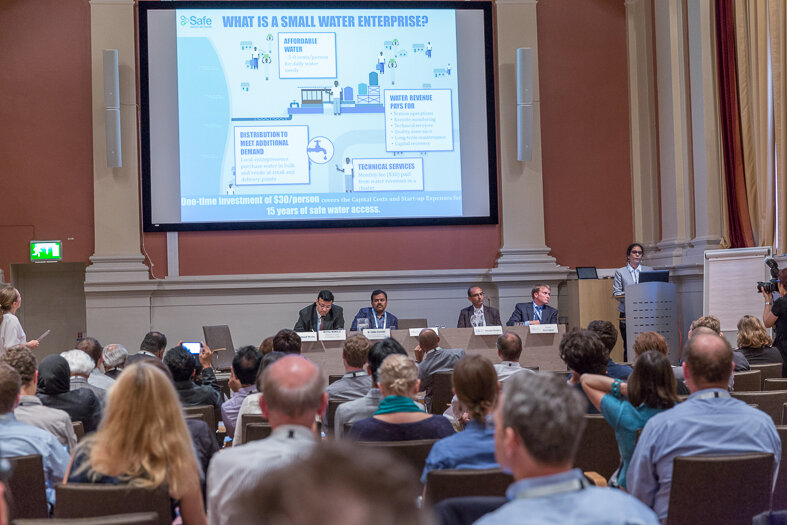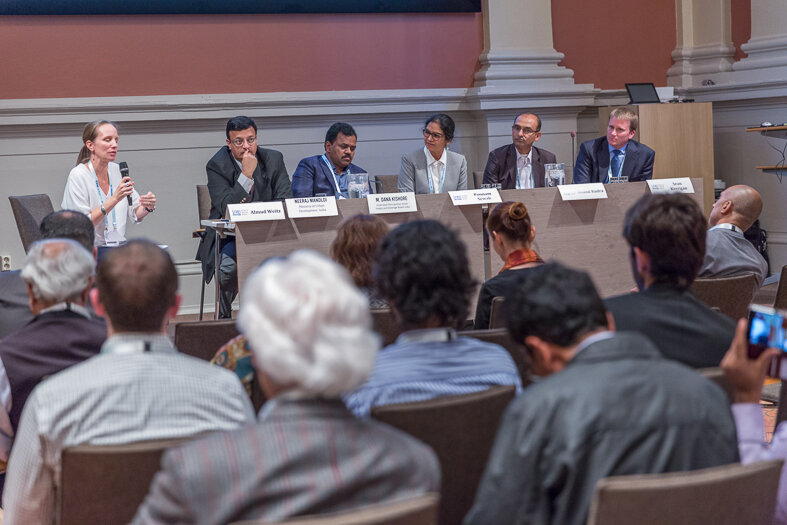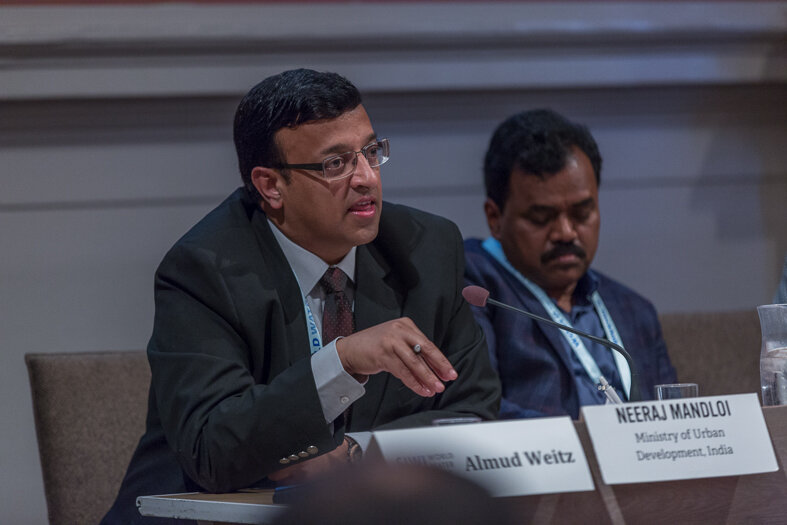
The 2016 World Water Week saw Small Water Enterprises (SWEs) gain recognition as a solution to help meet the needs of the millions of communities around the world lacking access to safe water.
This is part of a clear shift in focus, from thinking about water infrastructure and technology to the many different aspects of service delivery. Sustainability – particularly the operational and financial dimensions of making water work for consumers – has become a top of mind concern with the launch of the UN Sustainable Development Goals last year.
Safe Water Network and the US Agency for International Development (USAID) co-convened a session highlighting practical solutions for SWEs, informed by Safe Water Network’s recently completed Urban Small Water Enterprise Study which assessed the market potential for SWEs to the urban poor in in four-cities in India. The panel included senior representatives from Government of India, the World Bank, USAID, World Vision and Safe Water Network. The Study, conducted by Safe Water Network and funded by USAID India, led to the development of the first-ever sector-wide ‘benchmarks’ in setting standards for SWEs in India, and three decision-support tools. These tools, available in digital form on the Google play store, provide guidance on selecting the appropriate water treatment technology, enhancing the financial viability of a station, and assessing its sustainability among a number of factors.

Practical Solutions For Sustainable Small Water Enterprises In India. Music Hall, City Conference Centre, Stockholm Sweden

Practical Solutions For Sustainable Small Water Enterprises In India. Music Hall, City Conference Centre, Stockholm Sweden
During the 90-minute panel discussion, participants noted that SWEs can play an essential role in the government vision to provide universal 24×7 piped water access. Poonam Sewak, Knowledge and Partnerships Manager, Safe Water Network India, shared our experience with launching over 150 SWEs in India, the role that these are playing within the communities where we operate, and the business platform used to manage those enterprises at scale. SWEs are nimble, cost-effective, and able to adapt to varying water quality – all aspects that can complement existing and planned water pipeline infrastructure. The discussion noted that SWEs are already playing an important role in dense, unplanned communities, like urban slums, where they can shift the burden of water treatment off the consumer. With the requisite standards and business operations platform in place, the sector is poised to mainstream SWE adoption.
The results of the Urban Small Water Enterprise Study will be unveiled in more depth on October 14, 2016 at the next Beyond the Pipe Forum in New Delhi, India, and will also be included in Safe Water Network’s participation at the upcoming Water and Health Conference convened by the Water Institute at the University of North Carolina.
Safe Water Network had a contingent of four senior leaders in Stockholm this year, highlighting the opportunity of SWEs to deliver safe, affordable, reliable water service to consumers, particularly in peri-urban and urban settings, in ways that are financially and operationally self-sustaining.

Practical Solutions For Sustainable Small Water Enterprises In India. Music Hall, City Conference Centre, Stockholm Sweden
Additionally Safe Water Network hosted a roundtable discussion to lay the groundwork for developing an active community of stakeholders to adopt and advocate for SWEs. The interactive discussion focused on understanding opportunities for collaboration and understanding key initiatives already underway designed to advance the sector. Areas of focus included better understanding the market proposition, building an evidence base of success, establishing standards, aggregating financing, and encouraging more information sharing.
Safe Water Network looks forward to working with stakeholders to develop a community of practice as part of our shared commitment to deliver against Sustainable Development Goal 17, revitalizing global partnerships for sustainable development, and making the case for mainstream adoption and financing of SWEs to governments, development agencies, foundations and implementers.
Related links: